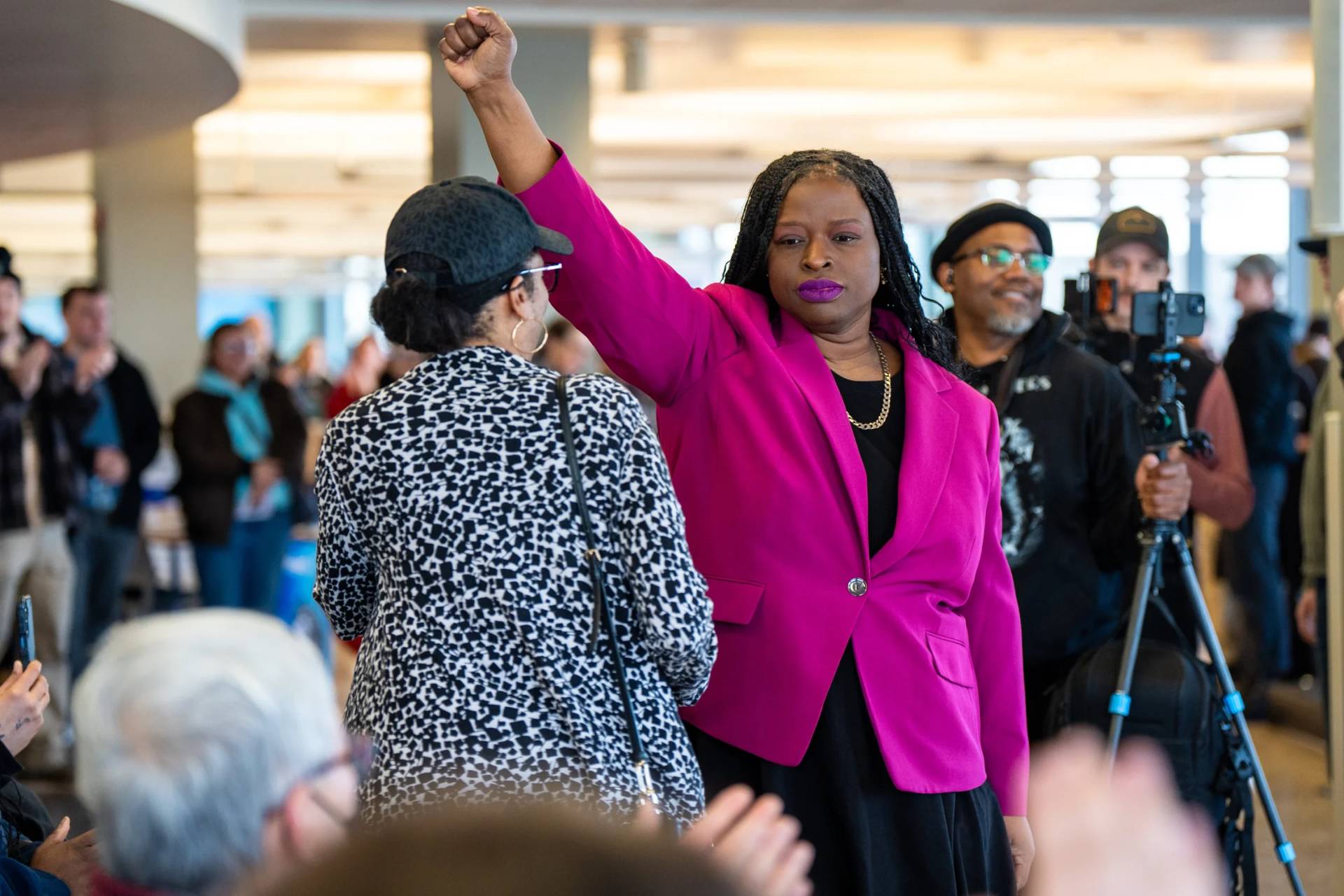It is time to abandon our simplistic and lazy life/choice binary framework.
7 in 10 Americans want abortion to be broadly illegal beyond week 12 of pregnancy, while 6 in 10 Americans want it to be broadly legal before week 12. Are Americans pro-life? Yep. Are Americans pro-choice? You bet.
In fact, a PRI poll found that seven-in-ten Americans say the term ‘pro-choice’ describes them somewhat or very well, and nearly two-thirds simultaneously say the term ‘pro-life’ describes them somewhat or very well. When one ID’s as “pro-life” or “pro-choice,” it not only reveals very little about what they think about abortion, it often reveals far more about one’s broader tribal and political commitments.
So while major media—which like easy-to-understand, antagonistic narratives—have used the life/choice binary for generations, it is time for something new. Especially given that the binary is even less helpful when describing what young people think about abortion.
But what could replace it?
In Beyond the Abortion Wars I wasn’t sure what the replacement framework should be (I ended up putting “pro-life” and “pro-choice” in quotes throughout the book to denote the imprecision of the terms), and I’m still not sure, but I now at least have a proposal. The following four categories don’t capture the views of every single person, but they are much better than what we have now and might help start a new conversation:
- Abortion-friendly. Someone in this category would currently ID as pro-choice, but specifically because abortion rights are in some sense a positive thing. A good example of folks in this camp would be those who support the Democratic platform’s claim that abortion rights are core to the health and well-being of women, men, and children.
- Abortion-permissive. Someone in this category also ID’s as pro-choice, but they do not think abortion rights are good things. They think abortion is morally problematic, perhaps even terrible, but nevertheless think it should remain broadly legal as the lesser evil. Perhaps they think making abortion illegal will only make the same number of abortions unsafe. Perhaps they have a libertarian skepticism about the role of government and getting intimately involved in the reproductive lives of women. A good example of someone in this category would be Ohio Representative Tim Ryan.
- Consistent-life. Someone in this category ID’s as pro-life and wants abortion to be broadly illegal, but also explicitly and consistently connects their pro-life values to other political issues. Many would support government programs (like paid family leave, and support for child care) which would help mothers in difficult situations. Many would also connect their views about respect for life, nonviolence, and concern for the vulnerable to other issues: health care reform, war, the death penalty, welfare programs, and more. Pope St. John Paul II (especially in his great encyclical on the Gospel of Life) falls into this category.
- Anti-abortion. Someone in this category ID’s as pro-life, but limits their primary political concerns to making abortion broadly illegal. Many are small-government conservatives who are skeptical of big government programs which coerce citizens to help others and crowd out small, local, diverse, and nimble institutions. Speaker of the House Paul Ryan is a good example of someone who holds these views.
Again, these categories can’t capture the views of every single person—and could be broken down into even more specific categories. The “abortion-permissive” category, for instance, includes very different kinds of people: everyone from those who want abortion broadly legal only, say, in the early part of pregnancy to those who want abortion broadly legal for most or all of pregnancy.
If I were writing an academic paper, I could easily come up with dozens of different positions on abortion. But in proposing a framework for speaking about abortion in public discourse, we cannot have something so cumbersome as to be unusable.
Some pro-lifers object to the distinction between abortion-friendly and abortion-permissive by bringing up other terrible evils. Should we really distinguish, for instance, between people who are slavery-friendly and slavery-permissive? If not, they argue, we shouldn’t do it with abortion either.
But what is interesting about this objection is that slavery is a classic example of where the distinction is necessary. Consider the debate during Abraham Lincoln’s campaign for the presidency. There were slavery-friendly people who argued it was a social good. There were abolitionists who wanted slavery to be made illegal.
But then there were the views of people like Lincoln—who clearly fell into the slavery-permissive category. Lincoln hated slavery and thought it morally evil, but for various and complex reasons did not want it made totally illegal in the southern states.
Again, these four suggested categories above are an attempt to start a discussion. I welcome other ideas. But it is clear we must replace the current binary framework with something which has the capacity to reflect some of the complexity of what people actually believe about abortion.
This would be good because it would be a more authentic framework. Period. But it would also be good because we would say good-bye to an antagonistic binary which artificially pits people against each other. If our cultural imagination changed to reflect more complexity, this would create the conditions for the possibility of creativity and even coalition-building in abortion discourse and politics.
For instance, many who currently identify as pro-choice—instead of defining themselves by opposition to “the other side” of the binary—could join those who currently ID as pro-life in supporting proposed abortion bans beyond 20 weeks.
Such a law, after all, would still be abortion-permissive as the overwhelming majority of abortions take place before this time in pregnancy. Most of Europe has abortion restrictions well before 20 weeks.
At the same time, those who currently ID as pro-life could join those who currently ID as pro-choice in supporting government programs which support the choice of women to keep the baby.
The reality of what people actually believe about abortion is complex and hopeful. And it can no longer be responsibly articulated within a life/choice binary. It is time for this framework to go.
Charles C. Camosy is Associate Professor of Theological and Social Ethics at Fordham University, and author of Beyond the Abortion Wars: A Way Forward for a New Generation.















